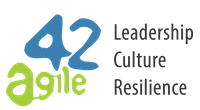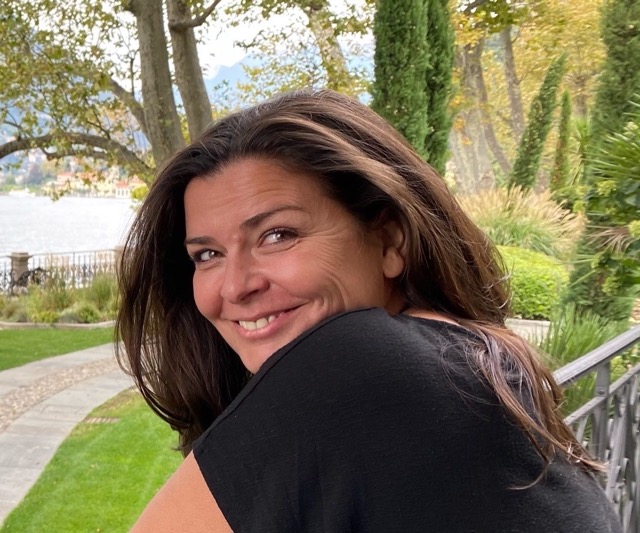Sipgate – The slightly different company
agile42 client Sipgate was the focus of a profile in German magazine Handelsblatt. The full article is available as Kulturwandel bei Sipgate: Das etwas andere Unternehmen (“Cultural change at Sipgate: the slightly different company”) and features some comments from agile42 CEO Marion Eickmann. The description of the company is very interesting and we thought it would be good to have a translation here on our blog.
Here’s how the Düsseldorf based VoIP (voice-over-IP) provider Sipgate multiplied their productivity.
When you come to Sipgate, in the ‘hip’ media hub Düsseldorf, the first thing you notice is the punch clock. A punch clock in a newbie start-up? It seems like a stark contradiction. Thousands of Post-it notes on the glass walls, in a digital organisation. To top it off, the open plan kitchen makes you feel like you are in a restaurant, rather than at a VoIP provider. The company also has a library with physical books – how old-fashioned.
Sipgate has 120 employees (including 70 bearded guys), 5 office dogs, and zero overtime. The company emphasises that they have been growing profitably without investors. The total revenue is around 30 million Euros. The start-up was the first ever VoIP provider in Germany. Competitors include enterprises like Telekom and Vodafone. The company was founded in 1998 in a student dorm – with two employees and the tariff comparator billiger-telefonieren.de.
In 2004, Sipgate was launched with 13 people, in 2010 there were 70. “In the beginning everyone knew each other, and our management-by-walking-around worked fine. Yet the more people we had, the slower we got in software development”, says Tim Mois, CEO and co-founder together with Thilo Salmon. An important project, the telephone system in the cloud was only ready after three years of development, at the eleventh hour. Mois: “We realized: We have to turn our entire organisation around, in order to get faster again.”

Pairing at Sipgate (Photo: Oliver Tjaden for Sipgate)
Many start-ups suffer the same issues as Sipgate, when they reach a certain size. “The more people join an organisation, the more processes are added. Hierarchies also slow down the feedback loops. Which leads to a more and more rigid organisation”, observes Marion Eickmann, CEO of agile42. The Berlin based consulting company has supported Siemens Motion Control, Interhyp and Dawanda, just to name a few. Less “control”, plenty of self-responsibility and small continuous improvements, according to Eickmann, help make a company fast again. Which is, of course, easier said than done.
Sipgate first had agile42 show them, how you can develop software much faster by means of a different company culture. “In the beginning, it was a culture shock for us. Yet, since then we have multiplied our speed a hundredfold”, says Mois. “Today we can deliver stuff to clients within a few days, whereas we would have needed a year before.” How can this work? Over the past years, Sipgate has developed their very own mixture of set principles and degrees of freedom. Nowadays, even companies like Basler Versicherung [insurance] drop by, to learn from Sipgate’s agile company culture. A key point is pairing: two developers always share one computer now. One coding, the other one watching, to make sure it makes sense.
Many defects are fixed before they reach the client. “Previously, we would write software, deliver it, then there would be problems at the client side and a year later, we would think about what to improve”, recalls Mois, one of the 70 beard-wearers. The Sipgaters not only pair or team-up in coding, but also elsewhere, even in accounting. The teams set concrete goals for themselves: such as reducing the number of client inquiries, in order to have more time for other stuff. They listed customer complaints by topic and then went through them one by one, systematically. “A year later, the number of customer complaints was decreased by half.”

Tim Mois, CEO and co-founder of Sipgate (Photo: Oliver Tjaden for Sipgate)
“Previously, we would often be working until 10 p.m.”, explains the 42-year-old. Now, everyone works strictly 40-hours per week. “We don’t do overtime. We have the punch clock on purpose – without that, people won’t stick to it. They are supposed to work better, not longer.” Each employee has 30 days annual leave that everyone is obliged to take. “Otherwise, some people tend to claim they don’t need as many”, says Mois. He does not believe in unlimited vacation days, like at Netflix, Zynga, Trivago or Virgin. It would only lead to employees exploiting themselves.
Home office is another policy that Sipgate does not pursue. “Communication is very important to us”, he underlines. It begins with the teams’ daily “Stand-ups”. 15 minutes tops to plan the day, standing up. And, plenty of colourful Post-its are stuck to the walls. Analog is preferred over digital, just like in any other meeting at Sipgate.
All teams are self-organising and they work according to their own responsibility. Cross-functional teams are set up for each product. Since at least one developer, accountant, designer and writer is included, everything goes faster. “Waiting for another department to respond? A waste of time that we cannot even imagine anymore today”, Mois says.
A very important day is the “Open Friday”. Every other Friday is completely reserved for colourful meetings throughout the entire company. At 10 o’clock, employees who would like to discuss a certain topic, get together and promote this on behalf of their group. “In other companies, it’s mostly the bosses who suggest the topics, and everything else remains hidden under the rug”, Mois criticises. They will discuss software issues, customer help, but also, for which causes the company should donate, or how to make fruit wine. “It is usually quite entertaining and liberates a lot of energy.”
Important: At Sipgate, nobody has to produce in front of coworkers or bosses. Because there are no career rankings or bonuses. “We have the same fixed-salary model for everyone according to their role, experience and seniority”, Mois says. It might sound like public service, but Sipgate has positive experiences with it. Mois: “Bonuses only lead to dissatisfaction”. The employees do get feedback about their performance – but completely without bosses, performance obligations [KPIs] and staff records. “We still want people to get better”, Mois says. Every six months employees pick three coworkers to get feedback from. And they can not say anything, but only listen to what their colleagues have to say. “It really helps people progress, because they also get a lot of praise.”
Hiring also runs without the bosses. Instead, the team members hire the new members. It’s called “Peer Recruiting”. “I don’t see job applications anymore at all, except those directly relevant for my area”, says Mois. The team also decides whom to dismiss. “50% of the people have to leave us after the probation period”, according to Mois. The veto of a single colleague could cost you the job. Mois considers it just being consistent: the cost of wrong hirings are enormous. And you could not tell in a job interview, whether a person is a good fit for the team. Most employees have already laid off people. “It is not amusing, no-one has an easy time doing that.” A small consolation for everyone who has to leave: as a farewell gift, they get their portrait, made by an Immendorff [famous German artist] student at the time of hiring, and hanging next to 120 others in the hallway.
“The more free people are, the more dedicated they are to their work.”
So what do the employees say about this unconventional company culture? Sipgate achieves 4 out of 5 stars on the anonymous employer evaluation platform Kununu. “Sipgate provides a work environment that you wouldn’t want to leave that easily: open and solution oriented communication, extremely flat hierarchies; a classical career: no, further development: yes”. Above all, employees appreciate having responsibility: “An awful lot of freedom”. But there are also a few, who cannot deal with the, in their opinion, “chaotic” conditions.
Even if there are no bonuses or promotions, the company can still show their employees appreciation via certain extras. An in-house bio-restaurant feeds the Sipgaters – for free. “We may not be Google, but it still pays off”, Mois stresses. Four chefs are employed and often a [Michelin] star awarded chef such as Volker Drkosch will drop by to provide new impulses. The restaurant seats 160; employees are also allowed to bring guests.
This year, Sipgate has had 8200 visitors. Mois: “Previously, we were an introverted company; the restaurant has turned us into an event location.” Since 2014, celebrities visit every month. Only recently it was Bruce Dickinson – Iron-Maiden singer, jumbo pilot and entrepreneur, who talked about how to turn your customers into fans. “We spend so much time at work”, Mois sums up. The employees should enjoy this. For instance, educational leave is entirely up to Sipgaters to choose, on their own responsibility, with no budgetary restrictions. The Sipgate boss has only positive experiences of it: “When you give employees liberties, they do not misuse them. And the more the people feel at ease and free, the more dedicated they are to their work.”

